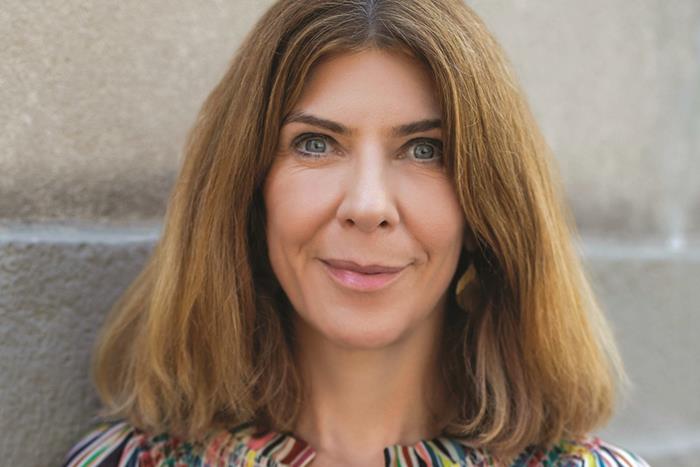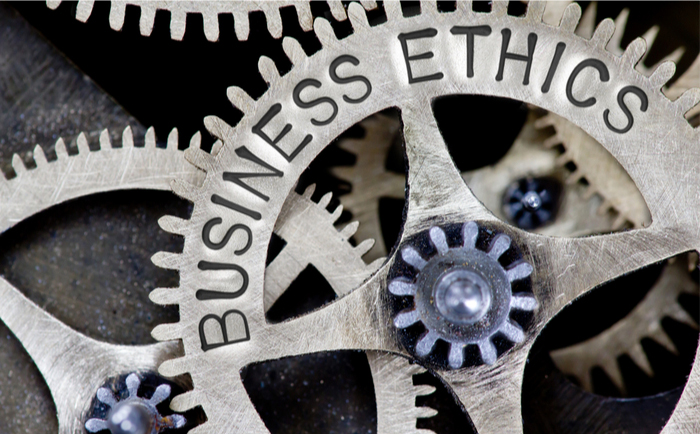Alison Taylor believes we need to have a “serious conversation about what the role of business is in society”. The Stern School of Business professor (pictured) has started that discussion with a new book—Higher Ground: How Business Can Do the Right Thing in a Turbulent World.
Taylor makes some key observations, one of which is that companies are struggling to be all things to all stakeholders. If they’re going to be better, and do the right thing, she suggests they will need a “purpose” but need to stop confusing “narratives” with substance, and start being honest about what they can and can’t achieve.
The book’s introduction claims: “You will come to regard ‘purpose’ in a fresh light. Purpose can prove useful in a practical sense, but only if it goes beyond a common win-win framing. It can—and must be—deployed as much more than a marketing gimmick.”
Taylor’s advice also rests on a unique diagnosis about corporate sustainability claims. What is traditionally known as “business ethics” has become a set of “defensive corporate principles” to defend shareholder value from reputational and regulatory risk. As a result, “sustainability” effectively becomes a narrative, a story, told to illuminate all the good things a company does, so that regulators and shareholders leave them alone.
“We’re telling corporations that if you have sustainability initiatives, and you keep your stakeholders happy, you’ll have a better reputation. And it’s not true. You can be a sustainability poster child… and you actually get more activist attacks, not less.”
Wake up and smell the coffee
The evidence is on the opening pages as Taylor cites the predicament of Starbucks. The company scores well on many sustainability measures, but the coffee chain undermines its position by opposing unionisation among its workers.
The company is falling short on being “consistent”, a factor corporates need “to wake up to”, she writes.
It’s a hard juggling act. Solving the conundrum, according to Taylor, involves movement on multiple fronts. Separating brand and reputation management specialists from sustainability leads to avoid competing public messages or even accusations of hypocrisy; purpose statements should be meaningful; companies need to be brutally honest about their “impact” on the outside world (many, Taylor observes, talk about sustainability, while ignoring the effects of their core products).
In addition, leadership style, especially top-down leadership, will likely have to change. Companies will also need to be honest in discussing what they believe they can tackle and the issues best left to politicians and democratic process.
Leadership is a key issue for Taylor. A younger generation in the workplace wants to be listened to and involved: “barking” orders from the top has had its day.
“One thing I’m arguing is that doesn’t work anymore, partly because young people want to be led in different ways,” says Taylor.
“You see a lot more collective action. You see a lot more speaking up [from employees] and leaking on social media. You don’t necessarily see that respect for authority.”
The best policy
Honesty is necessary, according to Taylor, to avoid making superficial sustainability claims. “Saying we’re going to listen to stakeholders in a generic way doesn’t really make sense,” she says. “We need to understand that no company is getting everything right. We need to identify the good practices, not the good and bad companies.
“And we need to understand no one is perfect, and we have a lot to learn from a lot of companies that may be perceived as problematic.”
Taylor remains optimistic that companies will become better, largely because of the changing nature of up-and-coming leaders.
“I have a lot of hope from the younger generation: they’re kind of amazing. I think they will lead differently. Millennials are not in their 40s, so I think we’re starting to see leadership shifts.” And that’s a call back to changing leadership models.
“Now it’s much more about a facility with concepts of diversity and social impact, understanding sustainability. It’s much less about, ‘I’m a former CFO and I can bark orders from the top!’
“A lot of people tell me I’m crazy, that Gen Z will toe the line when they need to pay their mortgages.
“I’m not so sure. I think the world is changing. On climate change alone, we will see different leadership… I don’t think any of this is going to happen quickly or easily. I’m super concerned about all the 2024 elections, particularly in the US. There are many, many ways this can pan out very poorly; we certainly see some companies doubling down on practices that I say are wrong.
“But I have a lot of hope for a leadership shift over the long term and reconciling all of these ideas.”
As politics surrounding sustainability becomes increasingly polarised a new voice on business ethics is urgently needed. Taylor may just be that voice.
Higher Ground by Alison Taylor is out on 13 February.





